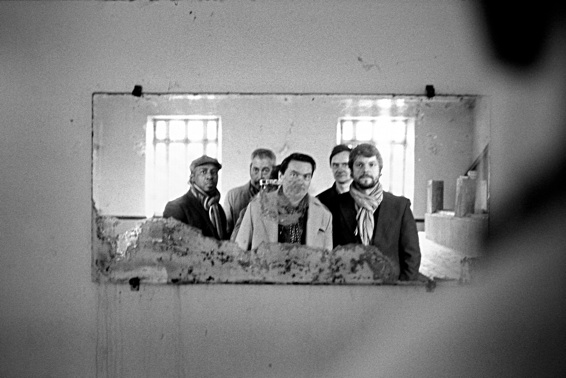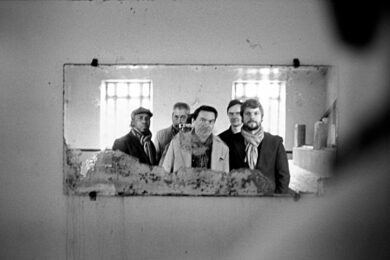There is bravery in beginning a set with a song as open, direct and vulnerable as ‘Blood’. Although this unabashedly shy number is the closest Tindersticks come to having an anthem, their courage lies in choosing a track off their first album. In doing so they set the bar for the rest of the night as high as that first album did for their career. When the Melody Maker made Tindersticks their album of the year in 1993 there was nothing very much of the moment about the record, no debt to its time or place, little more than they owe now. This timelessness has served them well, songs sung from musical eternity have a long shelf life as do the themes, arrangements and solemnity that were, and are, the group’s signature.
Still, it is no disgrace to say that their subsequent releases have, to a large extent, been footnotes to the template of that first great work, some nearly rivaling it (Tindersticks II), most not, the funky excursions of Simple Pleasure (a couple of tracks from this feature later), soundtracks and an album recorded in rural France embellishing but adding little to the master copy. All nine of their LP’s are attractive records that take a Faustian wager; that the price paid for dependable if restricted excellence can be a reduced capacity to excite.
This year’s The Something Rain broke that mild, agreeable stasis and the songs performed from it which follow ‘Blood’ chase the pack leader. In terms of diversity Tindersticks material has tended towards a narrowish range bolstered by the depth afforded by great emotion. That hasn’t changed, ‘This Fire of Autumn’ and ‘Frozen’ are new gods in old riches, briskly paced and as affecting as their illustrious forebears, their weight of feeling carried by an airy and expansive sound complimented by the location.
Somerset House, a London Versailles, is a grand fit for the band, the space isn’t a squash and those that are here are more likely to be because they love Tindersticks unconditionally, than to try them out for the first time. Stuart Staples and the group have aged as well as the early material. With his hair all salt and pepper and mustache the kind Higgins from Magnum might have grown if he let himself go, Staples has a face that was created for venerable middle age; the same is true for the look of the band who have reached a similar stylish osmosis. Their unhurried dignity is summed up by the track that closes the main set, ‘Come Inside’. It is the perfect vehicle for Staples’ voice, which exercises a rudimentary control over the material, never really needing to assert itself as the song dips along in slow graduations without ever sinking. Theirs is still the best use of a triangle in rock music, this deceptively simple and childish instrument the perfect foil to the adult experience the group constitute.
Of the encores, ‘Cherry Blossoms’ is so convincing that it feels like it is coming from the city sky itself, pouring through the atmosphere so that the band playing it appear no more than an incidental part of its existence. Gently it builds an intimacy without walls that remains in the ear as surely as the ringing that follows harsher musical trajectories. Staples’ voice is beautifully stoical, a man wronged even when in the right, demanding admiration and never sympathy, conveying the illusion of unrepeatable significance, an illusion that he is sure to recreate again whenever these songs next demand it of him.



